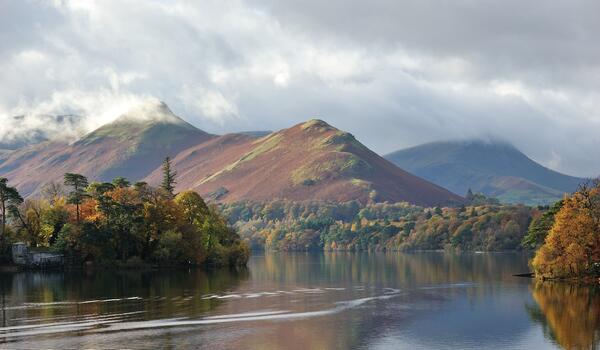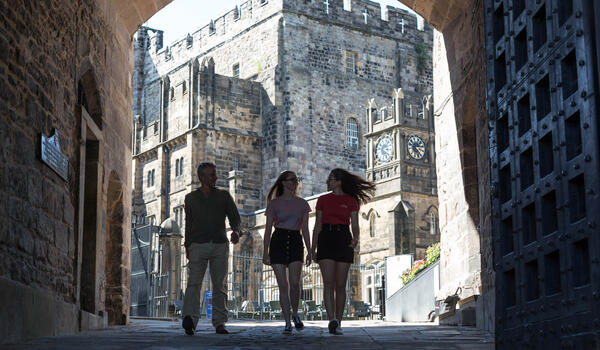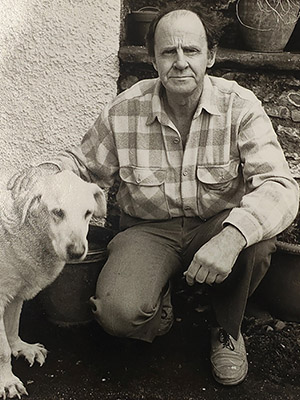Why Lancaster?
- Study close to the beautiful Lake District, home of our partners, the Wordsworth Grasmere
- Be inspired by our rich programme of literary events on campus, online, and in the city’s historic Castle Quarter
- Study on campus in the University Library’s bespoke Postgraduate Study Space, or in the Castle Quarter within the University’s Postgraduate Study Hub at The Storey, the city’s Victorian-built arts venue.
- Get involved with our student-run literary journals and our partners, Lancaster LitFest
- Develop your own work with support from our many celebrated author-tutors
- Explore the professional dimensions of Creative Writing, such as reading or performing your work, publishing, and marketing
Lancaster was one of the very first universities to teach creative writing. Today we continue to lead in the discipline with our celebrated novelists, poets and playwrights.
Focused on your growth
We’ve been helping writers reach their potential since 1970. From day one, our focus has always been on helping our students hone their work, and sharpen the myriad skills involved in writing at the very highest levels.
This emphasis continues today so that the focus in all your modules will, ultimately, be your own writing.
With our many author-tutors, you can explore traditional forms such as the short story, the novel, poetry, theatre, as well as digital media, life-writing, place-writing, graphic novels, writing for games, the lyric essay, and writing for young adults.
Support from experts
There is plenty of opportunity to meet your tutors face-to-face to discuss your work, and you’ll find they are friendly, interested and encouraging. You’ll also have an academic advisor who will develop an overview of your progress and offer further support.
In the third term, we assign you a genre-specific expert to help develop your final portfolio. This is intended to be suitable for submission to literary journals or agents, setting you on the road to publication.
Literary Community
Many of our special literary events (readings, conversations etc) take place in the Castle Quarter, with the Department’s flagship events, the October Lecture and May Gathering, being usually held at Lancaster’s ancient Priory. In addition, we have a unique partnership with the archive-rich Wordsworth Museum at Grasmere, which includes internships, an annual study retreat day, and free entry at any time of the year.
Most years our Creative Writing MAs publish an anthology, and compete for a place within our student showcase at Lancaster city’s very own LitFest
Department Bursaries, Awards, and Prizes
Thanks to generous endowments, in addition to the support offered by the University, the Department is currently able to offer:
One award of £500 is made each year to a student starting a Master’s programme in Creative Writing.
- The Bailrigg Awards – these are awards of up to £150 and are open to any student in the Department who is suffering financial hardship endowment.
- Two end-of-programme prizes for students on this MA
Careers
The course provides many opportunities to develop professionally. You can get involved with our student-run journals, and will also benefit from our rich programme of guest events featuring leading authors, and specialists from the publishing industry.
Each year we encourage our students to bring together and edit their own anthology of student work which is then celebrated in a reading event in the summer term. This event is also a chance to meet summer school students from our distance learning Creative Writing MA.
We hope most of our students go on to publish their own work, and many of the Department’s alumni are now celebrated authors. Recent success stories include Camille Ralphs, Andrew McMillan, Nguyen Phan Que Mai, Martha Sprackland, and Daisy Johnson, the youngest-ever author shortlisted for the Man Booker Prize (2018).
You’ll also develop a host of professional skills, such as researching, drafting, editing, listening, persuading and presenting. From advertising to professional services, your skills will be sought after across many different sectors.
Graduates of this course go on to careers in areas such as:
- Publishing
- Journalism
- Writing
- Television and the media
- Teaching
- Librarianship
You may choose to continue your studies at PhD level to deepen your knowledge and progress into an academic career. Graduates of this course have gone on to teach at universities throughout the world.












